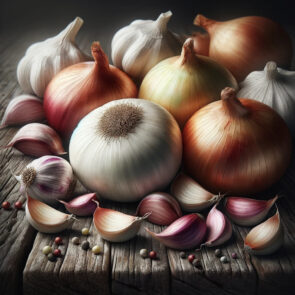What Are the Worst Foods for IBS? 5 Things to Avoid
IBS is painful and irritating. Meals become a matter of carefully scanning the menu to be sure that your selection doesn’t cause problems later. If you’ve been dealing with this challenging disease, you’ll wonder what are the worst foods for IBS? We’ve got the answers, including some foods that can help ease IBS.
Internal medicine doctors in Raleigh, like those at Raleigh Adult Medicine, specialize in understanding how all the systems in your body work together, and how an issue in one area can cause a problem in another. This makes us the perfect healthcare professionals to help those with irritable bowel syndrome and other similar conditions. Contact us to schedule an appointment.
In this article, we’ll look at the worst foods for IBS, look into its causes, and even mention some foods that can help ease your symptoms.
What Are the Worst Foods for IBS?
Often, one of the most effective treatments for IBS is managing your diet. Certain foods can cause IBS symptoms to flare up, causing issues of bloating, gas, diarrhea, and/or constipation to emerge.
Below are some of the worst foods for IBS:
1. High FODMAP Foods
FODMAPs stands for Fermentable Oligo-, Di-, Mono-saccharides And Polyols. These are certain types of carbohydrates. Those with IBS often have difficulty digesting some or all of these carbs.
Examples include:
-
-
- Wheat
- Rye
- Onions
- Garlic
- Legumes
- Honey
- Certain fruits
-

Aren’t sure which foods are FODMAP foods? Please speak with our dietitian Nicole Matala, who will be happy to work with you to help you keep your IBS symptoms from reoccurring with a tailored plan.
2. Dairy Products
Those who are lactose intolerant already know how important it is to avoid dairy products. These foods can also trigger IBS symptoms. Be wary of consuming:
- Milk
- Cheese
- Ice cream
3. Fried and Fatty Foods
We realize that the convenience of fast food drive-thrus is very tempting, but fried foods –particularly ones that are high in fat—can cause severe IBS symptoms, including diarrhea. Again, those with IBS have problems digesting these foods.
4. Caffeinated Drinks
Did you realize coffee, tea and certain sodas with caffeine can stimulate the intestines? The result is that diarrhea, a common IBS symptom, may get progressively worse.
5. Artificial Sweeteners
Certain sweeteners such as sorbitol and xylitol can lead to diarrhea in those with IBS.
What Foods Make IBS Worse?
We’ve provided an extensive list and information above, but other foods that make IBS worse, and the answer to what are the worst foods for IBS, include:
- Spicy foods
- Chocolate
- Alcohol
- Carbonated drinks
What Foods Help Ease IBS?
To help ease your IBS, you’ll want to select foods that are low in FODMAPs. This includes foods like:
- Oatmeal
- Barley
- Lean meats
- Bananas
- Carrots
- Cooked spinach
What Is IBS, and What Causes IBS?
IBS stands for irritable bowel syndrome. This is a common disorder, and roughly 10% to 15% of American adults have symptoms of IBS. However, only 5% to 7% have been diagnosed with the illness, according to the American College of Gastroenterology.
There are several possible causes of IBS, including issues with the nervous system, intestinal inflammation, infections, contractions in the intestine, and even changes in gut bacteria.
What Are The Symptoms of IBS?
Symptoms include:
- Bloating
- Gas
- Abdominal pain and cramping
- Constipation
- Diarrhea
- Sometimes both constipation and diarrhea are present

How Is IBS Treated?
We adopt a holistic approach. This means that we look at everything from lifestyle changes to diet, to stress management. (Many are surprised to learn that stress also plays a role in making IBS worse!)
Medications are beneficial in certain cases. Working closely with our internal medicine physicians in Raleigh is vital so we can create a treatment plan that is centered around your symptoms and the things that trigger them.
Still, Wondering What Are the Worst Foods for IBS? Let Raleigh Adult Medicine Provide the Information You Need
Living with IBS is challenging. It deals with understanding how your body reacts to certain foods. That’s why it’s so important to consult with one of our internal medicine physicians in Raleigh who can help you find ways to alleviate the troubling symptoms of IBS.
Are you tired of living with the issues surrounding IBS? Or are you looking for a new medical home? Get in touch with us so we can continue on a journey of wellness together. Scheduling an appointment is easy, contact us.




